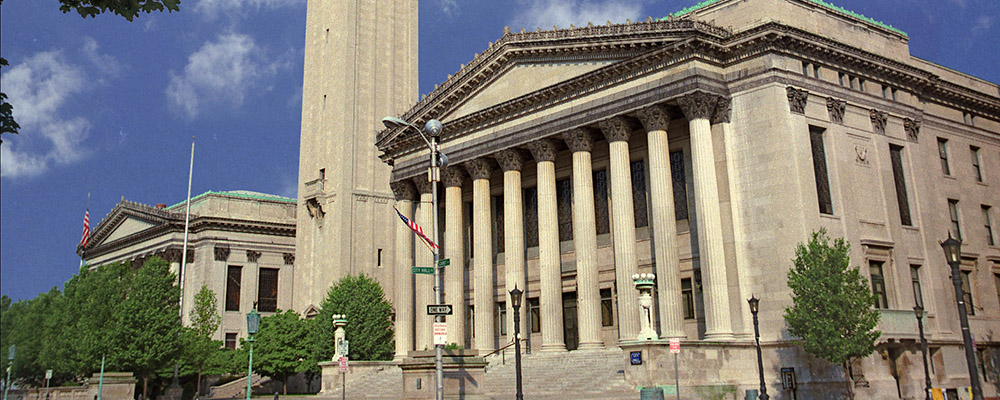From the brink to solid ground: Best days ahead for Springfield, Mass.
Since the start of the COVID-19 pandemic, Springfield, Mass., has been viewed as a model city by its neighbors in New England. A major overhaul of the city’s technology systems and financial and workforce management processes completed about a decade ago—followed by rigorous investment in community revitalization projects and extensive collaboration with public and private leadership—put Springfield in an enviable position to weather the most unprecedented crisis of our time.
Emerging from the early months of the pandemic, Springfield closed its fiscal year on June 30, 2020 with an $8 million surplus. One year later, it had nearly tripled that sum and closed the fiscal year with $25 million in free cash. While some cities used COVID-19 relief funds to plug holes in their budgets, Springfield invested wholly in its communities, prioritizing job creation and assistance for non-profits and senior citizens.
Over the summer, city leaders created the Department of Recovery and Business Continuity to oversee spending of a $93.8 million grant—the city’s share of the $1.9 trillion American Rescue Plan Act (ARPA)—and to maximize reimbursement from all other sources of funding.
“In fiscal year 2021, the city has incurred $21.6 million of expenditures related to the COVID-19 pandemic, which were funded by state and federal grants, and we have sought reimbursement for every expense,” said TJ Plante, Springfield’s chief administrative and financial officer. For example, the fire department generated an enormous amount of overtime at one point in the pandemic when 30 firefighters were in quarantine at the same time. But these hours were easily isolated using the city’s labor management system and were reimbursed in full by FEMA.
“It’s not the burden you think it might be to secure reimbursements,” added Plante. “We have technology that makes it easy to automatically track everything from labor hours to equipment purchases—like HVAC upgrades in our public buildings or food service equipment to streamline meal preparation and distribution at the feeding sites we had set up across the city.”
“We’ve been reimbursed $67 million of COVID-19-related grants in 2021, $45.2 million of which has been recorded as unearned revenue until spending plans are finalized. That sum will continue to grow as we process and appeal additional claims,” said Plante. “The city is currently eligible to receive a total of approximately $183.2M of COVID-19 related grant funding—and we owe it to our residents to chase down every dollar we can to help Springfield recover from the pandemic.”
How it started vs. How it’s going
Pummeled by the pandemic, few local governments today report being in the same position as Springfield: fiscally sound, with cash in the bank, and money coming in left and right. But this isn’t some stroke of luck. The story of Springfield’s descent into financial ruin in the 1980s and 1990s and its time under the control of a state-run financial control board from 2004 to 2009 is well known throughout the region—and its road to recovery as recounted by Plante in his debut book, Springfield Resurgent, is legendary.
Theirs is a story every city in America can learn from. It proves that those willing to embrace digital transformation and overhaul internal processes will prosper.
Once deployed, Springfield’s digital systems and data-based policies helped leaders find and reallocate millions of unmonitored funds in various city budgets; identify and correct many instances of timecard fraud and wasted labor hours; and uncover legacy processes that, for too long, had resulted in the mismanagement of payroll deductions and retirement payouts.
With automated systems bringing data and trends to the surface, Springfield is able to do more than correct and prevent financial neglect: they’ve reigned in overtime costs, successfully negotiated pivotal changes to contracts with labor unions, and have become more efficient in scheduling and managing their hourly workforce.
Freeing up resources, funding, and people power, Springfield turned a $41 million deficit into a $50 million surplus, which city leaders have used to generate more than $4.5 billion in economic development.
They leveraged their financial strength to advance scores of multimillion-dollar development projects in the city’s downtown district and bring major economic engines to Springfield, including MGM and railcar manufacturer CRRC, which has helped to create hordes of middle-class jobs. Springfield’s public schools, too, are quickly regaining their vibrancy as high school graduation rates rise, college acceptances increase, and the city continues to invest heavily in its public schools’ infrastructure and school nutrition programs. (Incidentally, because of exhaustive efforts to update school facilities in recent years, only six out of Springfield’s 60 public schools were in need of HVAC upgrades prior to the 2020-21 school year.)
Once on the brink of total financial collapse, Springfield is far ahead of the curve in its recovery from the effects of the pandemic and shows a relentless commitment to building back even stronger. This year, the city pushed forward multiple development projects, including the completion of a new elementary school in time for opening this fall, and acquired three buildings downtown to generate additional market-rate housing, office space, and restaurants.
“If COVID-19 and its devastating ripple effects had happened a decade before, our city might have completely gone under,” said Plante. “But we’ve made tremendous progress in Springfield. We’ve generated incredible cost savings by investing in technology and implementing data-driven processes in every department citywide. Strong financial oversight and real-time access to labor data have primed our city to emerge from this latest economic crisis stronger than ever.”
Special note: Springfield Resurgent (2021) provides a full account of the City of Springfield’s road to revival. All proceeds from the book benefit the Springfield Promise Program providing college financial aid advising to Springfield Public and Charter School students.
Jennifer Dowd is director of the public sector practice at UKG (Ultimate Kronos Group), a global provider of HCM, payroll, HR service delivery, and workforce management cloud software solutions.




















